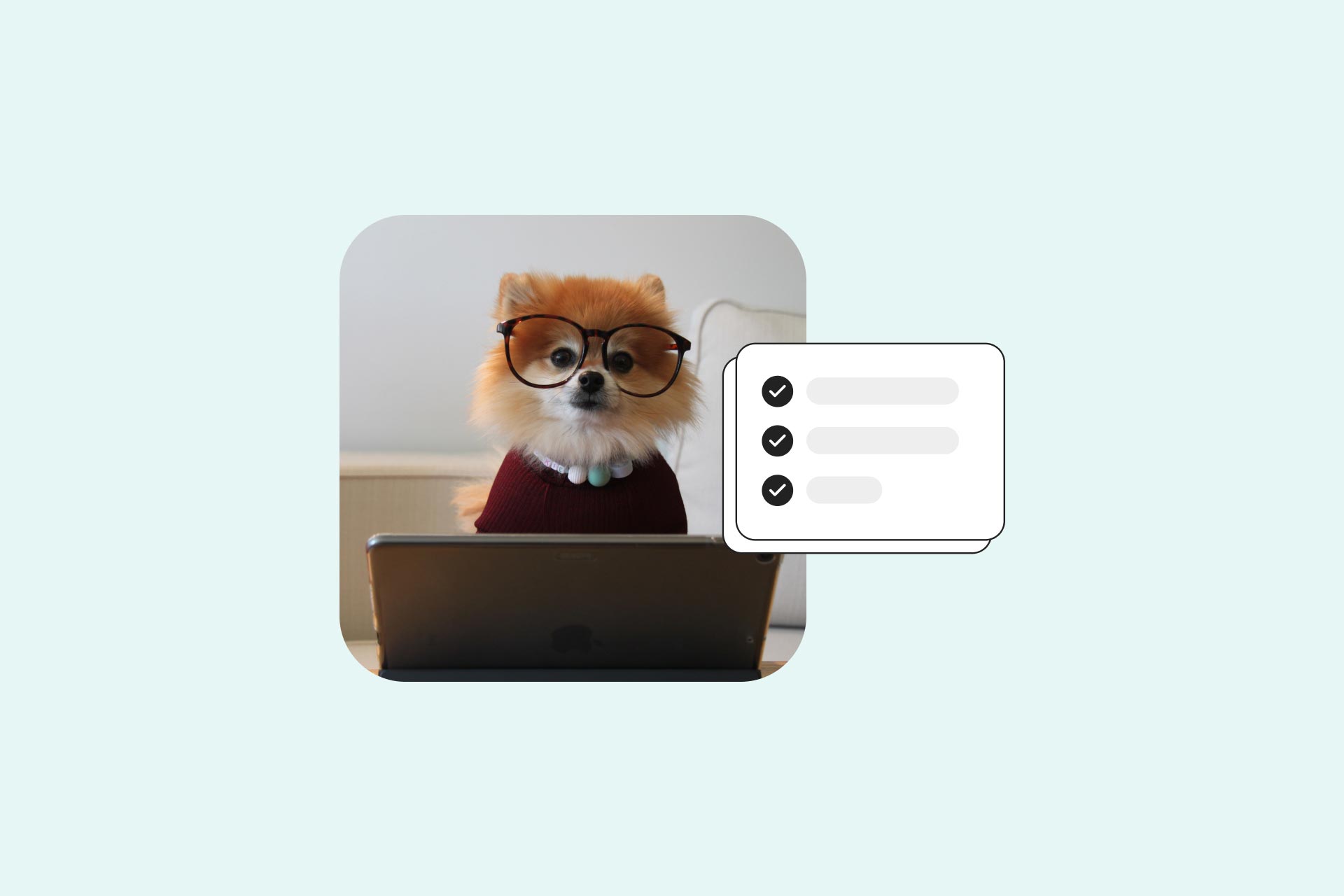Describe Yourself in an Interview: Step-by-Step Guide, Examples, Adjectives & Tips
Find it hard to choose the right words to describe yourself in an interview? In this post, you will learn words and adjectives to describe yourself with confidence. You will also learn the correct way to structure your answer. Plus, discover what you shouldn't do during your self-introduction in an interview.

Knowing how to describe yourself well is the first step towards success in an interview. It’s one of the most common questions during a job interview, if not the first.
How you describe yourself in an interview will help the interviewer assess your skills, traits, and attributes. It’s also a way for you to demonstrate how you can add value to their organization.
In this article, you’ll learn how to describe yourself in a structured manner. You’ll also learn which words to use in your job interview and see examples of these scenarios at work.
- How to describe yourself: A step-by-step guide
- Adjectives to describe yourself in three words
- How NOT to describe yourself in an interview: 5 mistakes to avoid
- Personalized interview coaching
One of the best ways to prepare for interviews is to look for insights from professionals in the industry you want to enter. That way, you’ll know what to expect and how to be the best candidate to exceed those expectations. In other words, having an industry professional coach will increase your chances of both acing an interview and nailing a job.
Before everything else, you have to remember that you need to start strong in your introductions. That’s because whoever’s interviewing you might cut the interview short if they don’t feel like you’re ready or if you’re not taking it seriously.
So here are ways to ensure your interview gets off the right foot. We’ll also provide examples of how to describe yourself in an interview when appropriate.
How to describe yourself: A step-by-step guide
When an interviewer asks you to introduce yourself, they’re asking you to describe yourself. Since that’s a broad question, you’ll need to create a structure for it. Here’s a simple introduction structure you can use:
- Personal details
- Three adjectives
- Your achievements
- Expectations setting
1. Personal details
When you start a conversation with someone you just met, you don’t go straight to the point.
The same in interviews. Start by telling your name and where you live. You don’t have to go into detail, but it helps to let the interviewer know about your living arrangement, such as who you live with and if you have pets.
It is your chance to inject warmth into the conversation. Don’t be afraid to be a little candid, as long as it’s appropriate for the situation. For example, you can say you like the city you’re living in, and that’s why you’re looking for work there if the job you’re applying for is in the same area.
Example answer:
“I’m (name). Pleasure speaking to you. Right now, I live in (city) by myself/with my family/with my partner. I lived here my whole life/moved here for work/when I was (age).
I’ve heard good things about (organization) in (industry), and it’s located in a great place. So I decided (organization) is a great company to pivot my career to after (years of employment) at (company name)/finishing (degree name) from (university name).”
2. Three adjectives
We’ll cover this more in-depth later. For now, what you need to know is that these three words are your most defining traits at work. Go for powerful adjectives open for further elaboration.
Example answer:
“If I had to pick three adjectives to describe myself, I’d choose resourceful, encouraging, and results-driven.
I’m resourceful because I find ways to deliver even in high-pressure situations. I’m quick to find new solutions if the current methodology is lacking. At the same time, I keep my team’s morale up by hearing out their problems and reminding them to take a breather when needed.
Being resourceful and encouraging to my team helps us achieve our set goals and tweak them so we don’t plateau in growth.”

Introductions are a way to break the ice and establish the tone of your interview. You can’t be completely candid, but you can be a little personal.
3. Your achievements
Focus on achievements and milestones related to the job posting. In our example, the focus will be on someone applying as a content marketing manager. This person needs to use assertive language when citing concrete examples to drive home that they’re a value-add to their potential employer.
Example answer:
“In my last company, I was responsible for a 200% increase in blog traffic. By working inter-departmentally, I spearheaded an overhaul of schedules and campaigns that grew our audience. And by creating a relay system with our BDR team, we doubled our conversion rate.”
4. Expectations setting
If given the opportunity, you should try to set expectations for what you can bring to your potential employer. As much as possible, do this after you’ve asked questions about their company, and why they need the position they’re hiring for. That way, you can tailor your answer to their needs.
Example answer:
“If I become your content manager, I can take stock of your organization’s current needs and identify what strategies are needed to meet them. We can then work on a long-term plan to work on neglected goals and create new ones we can achieve per quarter. I can also introduce team bonding exercises I developed in my last place of work, proven to improve morale and synergy.”

This is your first chance to impress your interviewer and show that you’ll add value to their organization.
Adjectives to describe yourself in three words
“Describe yourself in three words” is a common interview question. By asking you to describe yourself in three words, interviewers assess whether or not you have a firm grasp of your working style and personality.
It also tells the interviewer how you view yourself. Plus, it allows them to envision how you’ll fit within the workplace.
So when you’re looking for three words to describe yourself, you might feel a little overwhelmed by the choices. To lessen the pressure, try to group adjectives under traits that employers look for the most in interviews. You can try splitting these adjectives up by these five traits:
- Industrious
- Results-driven
- Adaptable
- Encouraging
- Genuine
In many of the articles and videos you’ll find online, you’ll find that interviewers like hearing adjectives related to these traits the most. That’s because these words reveal how you interact with others, how you think, and how your skills align with your personality.
When picking adjectives to describe yourself, remember that you’re selling yourself. You need to be positive, yet realistic. Make sure you’re not exaggerating to the point of being dishonest.
At the same time, don’t be self-deprecating! There’s a way to remain humble without hurting your chances of getting hired, as the sample answers below show. And before you speak, parse out what you’re trying to say and think about it to avoid any misunderstandings.

Think about your best traits before the interview, so you’re prepared when you’re asked to describe yourself.
1. Industrious
- Persistent
- Tireless
- Diligent
- Conscientious
- Persevering
Before anything else, you should note that some articles discourage the use of “hard-working”. This post points out that you can’t prove that right off the bat. Instead, it’s better if you use words that can be parlayed into examples of how you demonstrate your industriousness.
Example: “I was persistent in reaching out to our customers who had negative feedback about our product. Because of my conscientious work, my team identified major problems and addressed them.”
2. Results-driven
- Results-oriented
- Goal-directed
- Purposeful
- Committed
- Ambitious
It’s best to show your potential employer that you always have your eyes on the prize. By showing that you’re working towards goals, your interviewer will feel confident that you’re determined to be a top performer. While companies might expect this, you never know how meaningful it is to meet their expectations.
Example: “Because I’m results-driven, I look forward to working with the team to share my passion so we can meet our goals. If the worst happens, I want to ensure we can still turn things around for a net positive.”

Instead of saying you’re “hardworking”, use words that imply more about “how” you’re committed to your job and organization’s goals.
3. Flexible
- Versatile
- Innovative
- Inventive
- Dynamic
- Resourceful
Workplace flexibility is expected of everyone, but not everyone has it. You need to be flexible to adapt to evolving challenges. You also need to show that you’re willing to modify how you approach your work to reach your goals.
Example: “I’m quite resourceful. For example, when my team needed to shift to another software to publish our content, I took courses in advance to help the team out during our retraining.”
4. Encouraging
- Coactive
- Supportive
- Corroborative
- Synergistic
- Diligent
A study in 2019 identified soft skills as a deal-maker and breaker for 92% of talent professionals and hiring managers when it comes to hiring candidates. An important soft skill is your ability to communicate and work well with others.
Example: “I’ve been described as coactive, as I tend to meet with my co-workers after hours and between breaks to help them map out their career path within the company.”

Interviewers want to know if you can empathize and click with your teammates.
5. Genuine
- Authentic
- Sincere
- Credible
- Unfeigned
- Honest
Similar to the set of adjectives above, this set has to do with your interpersonal skills. While everyone is expected to be honest at work, can you set the record straight while remaining tactful?
Remember that being brutally honest all the time isn’t necessarily the best option. Any strong surge of emotion might lead you to say something untrue, gravely exaggerated, or intentionally hurtful, even if it’s your sincere opinion. So while you aim to be authentic, be careful when you tell the truth, and time it right.
Example: “Integrity is important to me. I must be consistent with how I act at work and be upfront with the people I work with, so none of us have to compromise on what we bring to the table.”
How NOT to describe yourself in an interview: 5 mistakes to avoid
Now that you know how to describe yourself in an interview, let’s look at some mistakes to avoid. These run the gamut from careless words and phrases to statements that might seem honest but would damage your chances.
1. Using filler words
Filler words hurt your chances in a job interview. A “basically”, “um”, or “like” makes you sound as if you didn’t think what you’re trying to say through. Don’t forget that you can ask for time to think about a question, or to have the interviewer repeat their answer if you don’t understand.
Aside from these verbal tics, you should also avoid ambiguous words. For example, avoid using “experience” and “basically”, and go straight for an elaboration. Avoid cliche words too, like “self-starter”, “motivated”, and “dedicated”.
Finally, avoid casual and double-edged adjectives. “Cool” and “radical” might be too informal for a business setting, even if the organization is relaxed. “Competitive” and “perfectionist”, meanwhile, may tell interviewers that you might prioritize your career above the overall wellness and performance of your team.
2. Badmouthing
You should also choose your words carefully when talking about previous employers. Industries are smaller than you think. If you bad-mouth an ex-employer, your potential employer will think this is your attitude towards everyone you previously worked with.
Other than that, you might be spilling NDA-protected information. Even if it’s nothing specific, it shows your potential employer that you’re careless with classified data. Plus, even if you don’t say the word “hate”, it’s implied if you rant about a previous employer. That “hate” might get you classified as a “high-risk candidate”.

Avoid using the words “fired” or “dismissed”, too! These words might flag you and hurt your chances.
3. Sounding uninterested
Your interviewer will take notice if you’re detached and unconfident from the start. Interviewers want candidates who are certain about their skills and are confident enough to convince them that they’re the perfect fit for the job.
They also want someone who knows what they want from the job and is curious enough to ask questions after or during the interview.
4. Sounding boastful
Unless you can prove that you’re a leading voice in the industry, don’t use the word “authority” to describe yourself in an interview. Chances are, you’ll come across as unskilled for the level of expertise you say you have. Give a modest assessment of your competencies, and prove it instead of saying it.
On a related note, be open to not knowing something. Not being the authority of a subject or field opens you up to the possibility of growth. It also gives birth to the possibility of having a niche or specialization that prospective employers can chalk up as a value add.

Be engaged when your interviewer speaks to you, and adapt questions you’ve prepared beforehand to what you learn during the interview.
5. Negative self-talk
Being negative about yourself is completely different from self-criticism. Don’t lead your answers with things you can’t do or tasks that will challenge you. Think of a way to rephrase these answers to show that you can create positives from these potential negatives.
And when you’re asked to talk about the biggest challenge you’ve faced at work, emphasize how you overcame it, and what you learned from it. Keep the story you tell relevant to the job, or at least, how you solved the challenge. Use the STAR method to keep your thoughts organized and sound credible.
Now, what if you need a little help putting your interview together? As you can recall from the start of the article, there’s a recommendation for one-on-one coaching.
Personalized interview coaching
For Erik Hernal, the one-on-one coaching he received through Acadium Plus helped him retain his education and training better than traditional schooling.
Both his resume and job interview skills were polished by on-demand coaching from an industry expert. He also didn’t lack experience, as he took courses taught by industry professionals and gained hands-on knowledge by matching with a business in digital marketing.
In the end, Erik quickly landed work at Cleverly Agency as its new VP of Marketing.
“After the program, I felt more career-ready. I knew that first and foremost my resumé was excellent because I had a pro actually review and walk me through it.”
Your interviews can be a walk in the park if you know how to prepare for them. One thing you shouldn’t forget in your preparation is that you’re upselling yourself in interviews.
That means you need to put your accomplishments in a positive light. But be careful not to overdo to the point where you’re overselling your skills or outright lying. You must subsequently ride the crest of energy that your confidence creates to keep the interview going.
Don’t lose this confidence or energy if your interviewer appears inscrutable and you can’t gauge their reactions. Just keep going, answer questions with thought, and show the interviewer that you should pass this interview and get the job, or go to the next stage of the hiring process.
Lastly, you can’t always guess company values, but you can always look at their website and tailor your answers to reflect what you see there.
Preparations will help your interviews go smoothly. Keep this post open when you do your prep to keep yourself on the right track.
Five years in journalism, two in proofreading, and eight in freelance ghostwriting. Creating content that's entertaining, informative, and actionable shapes my writing. When not scrutinizing my copy, I'm likely watching hockey.
-
Career Prep
Top Marketing Webinars for Digital Marketers in 2025
By attending these webinars, you will have the opportunity to learn from industry leaders, gain insider knowledge, and stay ahead of the competition.
-
Career Prep, News
9 Types of Digital Marketing to Choose From in 2025
Digital marketing is a dynamic field that offers diverse career opportunities. From search engine optimization to social media marketing, there are many specializations to explore. Whether you're just starting out or looking to switch careers, this guide will help you find your ideal digital marketing niche.

Subscribe to our newsletter for digital marketing resources
Become a better marketer with our digital marketing resources and tips shared weekly in your inbox.

Get started with Acadium
Build your marketing career for free or find marketing talent on any budget — fully remote.


